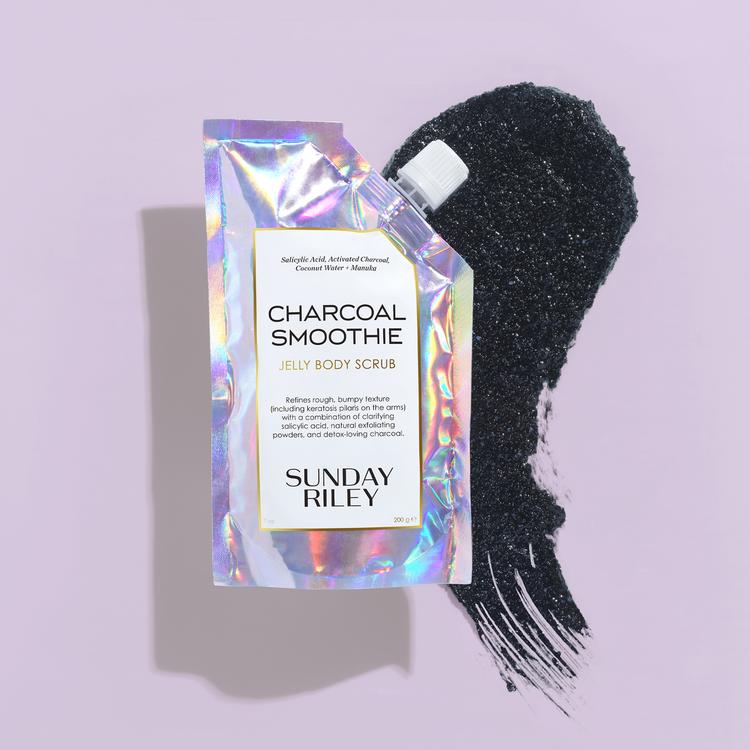Sweat: It’s sticky, uncomfortable, and ahem, sometimes smelly, and a totally normal bodily function. You may notice your sweat more often on hot summer days or after a workout, but in reality, we sweat every single day. Most of the time, it’s nothing to worry about. Other times, it could be a signal of something more serious happening in our bodies.
Here, we explore what sweat is and what it can tell us about our health.
First, what is sweat?
Also known as perspiration, sweat is a liquid released from the body’s sweat glands, explains Dr. Seema Sarin, MD, the director of lifestyle medicine at EHE Health. We are born with two to four million sweat glands, but they don’t become fully active until puberty. Generally speaking, she says sweat glands regulate our temperature since when our body senses we are overheating, it promotes heat loss through evaporation.
Though you may catch a whiff of yourself and think differently, Dr. Sarin explains that sweat itself is purely odorless and mostly made of water (99%) and salt and fat (1%). However, when sweat reacts to the bacteria on your skin — dirt, clogged pores, and so on — it can create the body odor we’re familiar with. Also, where we sweat can change how it might smell, according to Dr. Sarin.

The Eccrine Glands produce most of your body sweat and are located on your forehead, palms, soles, and armpits. The sweat produced by these glands contains water, salt, urea, protein, and ammonia. On the other hand, the Apocrine Glands are also located on the armpits and are found in the groin and breast area. “These are larger than Eccrine Glands, and the sweat produced here tends to smell more potent, and since they are located near hair, where more bacteria often is, the sweat often smells worse,” she explains.
Is smelly sweat a bad thing? Not at all, Dr. Sarin says. It can be hereditary and based on biology since men tend to sweat more (and it can be stinkier). Also, it could just be that you need to take a shower because you have more grime on your skin’s surface.
What sweat can tell us about our health
The next time you sweat, pay attention to how you feel. Is it a cold sweat? Do you feel clammy? Are you sweating, but you haven’t been in the sun or recently worked out? Here, we explore the different things our sweat could be telling us:
You may have clogged pores.
As we mentioned, sweat itself doesn’t carry a smell. So, if your sweat is overly stinky or repugnant? It could be a sign that your pores are clogged, according to nurse practitioner Taylor Semien, FNP-C. To remedy this, shower immediately after you finish a fitness routine or you’re out in the hot summer sun. You can also consider gently exfoliating your skin a few times a week to ensure you are getting rid of all built-up bacteria or grime on your skin’s surface and layers.
You may have hypohidrosis or anhidrosis.
Botox can be injected into certain glands to cut back on perspiration.
Do you sweat… a lot? Like way more than any of your friends and typically, all year long? If so, you may have a condition called hyperhidrosis. This medical condition causes profuse sweating and can actually cause a person to sweat up to four times more than what’s needed to cool the body down. Dr. Sarin says an estimated one in five Americans suffers from this issue, and treatments are available. For example, Botox can be injected into certain glands to cut back on perspiration.
On the other side of the spectrum is a condition called Anhidrosis. As you can probably guess, this stops people from sweating and regulating their body temperature. “It can be inherited genetically or can be associated with diabetes, heatstroke, radiation therapy, or alcoholism,” she says.
If you’re concerned about either of these conditions, book an appointment with your primary care physician ASAP.
You may need more sodium.
As Semien says, we often associate sweat with negative effects on the body, but more importantly, it is your body’s way of telling you what is happening internally. One indicator is when your eyes sting while you sweat. It may feel like a piercing pain or a subtle, dull sensation that doesn’t go away. When this happens, it could be a clue that you lack sodium and need to replenish, Semien says. To remedy this, drink an electrolyte drink or take an electrolyte supplement. And if it persists, speak to your doctor.
You may be experiencing stress.
The next time your boss sends you a cryptic email or you have an argument with a loved one, take note if you sweat. Sometimes, people naturally sweat when they feel stressed. How come? Semien explains it’s our body’s way of thermoregulating our internal response to stress, which includes a raised heart rate, upset stomach, and so on. When this happens, try to regulate your symptoms by breathing deeply and developing coping mechanisms to manage your fears.
You may have low blood sugar.
Sweating and your diet go hand in hand as well. “A sudden onset of sweat and feeling clammy can be associated with low blood sugar,” Semien says. “That is your body’s response to a lack of blood sugar and/or insulin breakdown within your body. Usually, this can be treated non-medically by eating a snack and or drinking juice.” Some people sweat when their heart rate goes up — even from a cup of coffee! — so try to stay away if you’re sensitive.
You may have a serious health condition.
A sudden outbreak in sweating can sometimes indicate something more serious, Dr. Sarin warns. This looks like intense sweating, out-of-the-blue, seemingly, from nothing. “Outbreaks of heavy sweating with an elevated heart rate could signify the early signs of a heart attack, diabetes, or a thyroid condition,” she says. “Furthermore, excessive outbreaks of sweat can happen during menopause or with certain types of cancer. If you’re not sweating after a rigorous workout or you feel like you’re sweating too much, it’s important to see your doctor as soon as possible.”
We only recommend products we have independently researched, tested, and loved. If you purchase a product found through our links, Sunday Edit may earn an affiliate commission.








